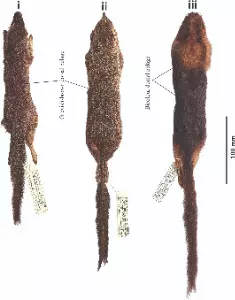South Asian treeshrews: ZSI unlocks intricate taxonomic relationships

Kolkata: Researchers from the Zoological Survey of India (ZSI) have unlocked the intricate taxonomic relationships among South Asian treeshrews by examining decades-old museum specimens.
Asian tree shrews are enigmatic small mammals long misunderstood due to their superficial resemblance to squirrels. Treeshrews, despite their name, are not true shrews nor squirrels, but belong to a distinct order called Scandentia. While they share a similar size and arboreal lifestyle with squirrels, treeshrews can be easily distinguished by their elongated snouts, reduced whiskers, moist nasal pads and insectivorous or frugivorous diet. Historically misclassified as primates, they are now recognised as an ancient lineage of mammals endemic to South and Southeast Asia. “We have shed light on how these fascinating mammals differ from one another by examining decades-old museum specimen. This clarity is essential not only for accurate species identification but also for shaping effective conservation policies. When analysed with modern techniques, museum specimens reveal patterns of variation that were previously hidden, helping us address long-standing taxonomic ambiguities,” said Manokaran Kamalakannan, lead author and scientist at the Mammal and Osteology Section, ZSI who conceptualised and led the entire study from data collection to the final morphological analysis Mukesh Thakur, co-author and scientist, emphasised: “There is a need for genetic studies to support a comprehensive phylogenetic analysis of South Asian treeshrews. This should be a priority for future research.”
Most strikingly, the study overturns long-standing assumptions about the Nicobar treeshrew. Once believed to be the smallest among South Asian treeshrews, the analysis reveals it is, in fact, the largest in South Asia and the third largest of all 23 known treeshrew species globally.
Commenting on the implications of the findings, Dhriti Banerjee, Director of ZSI, stated: “This study is a major step forward in mammalian conservation in South Asia. Accurate taxonomy is fundamental to protecting species particularly insular endemics like Nicobar Treeshrew, which faces growing ecological pressures.” The research utilised a wide dataset from over a century of preserved specimens, employing cutting-edge morphometric methods and statistical modelling. These insights not only resolve taxonomic ambiguities but also enhance conservation strategies for these ecologically important but often overlooked mammals. The groundbreaking study has been published in the international journal “Ecology and Evolution”.



